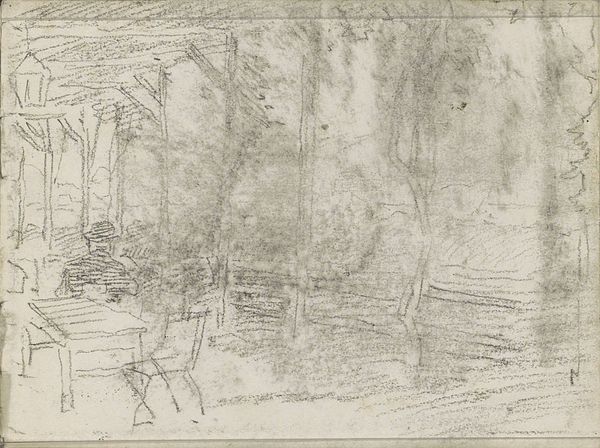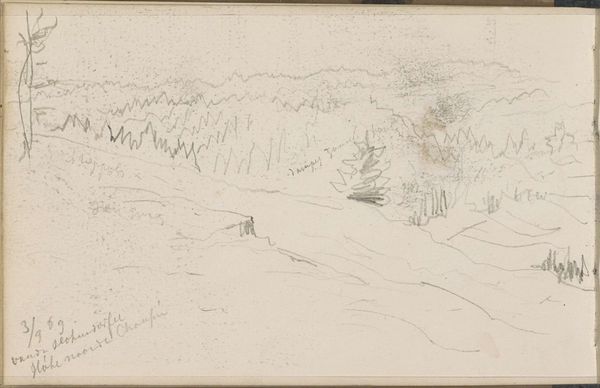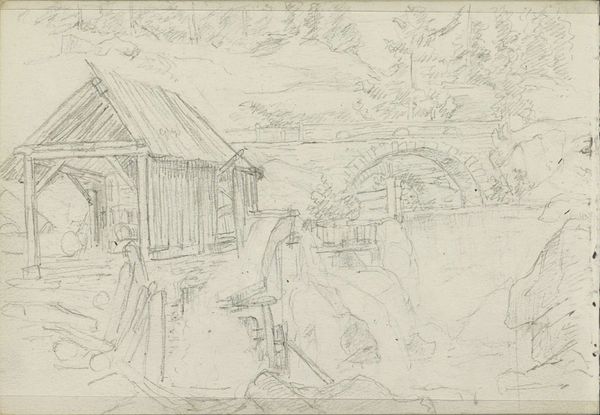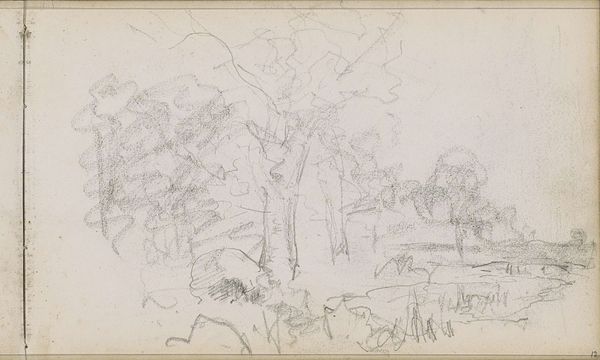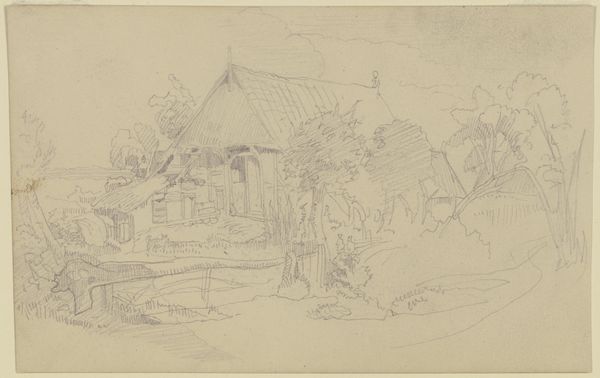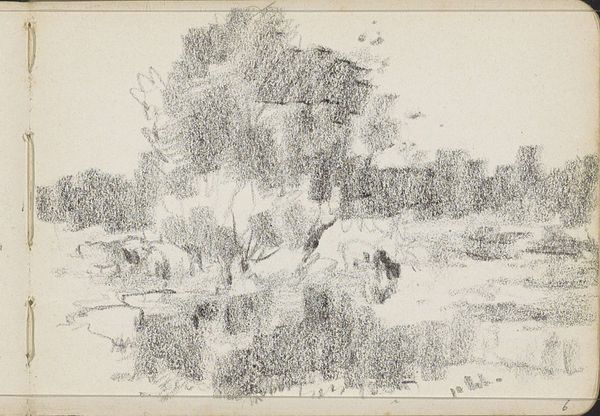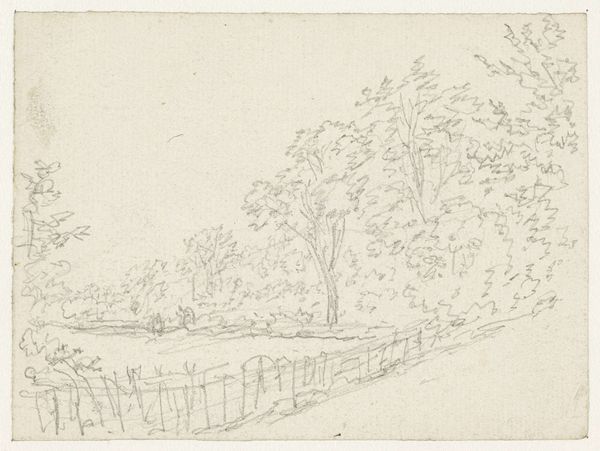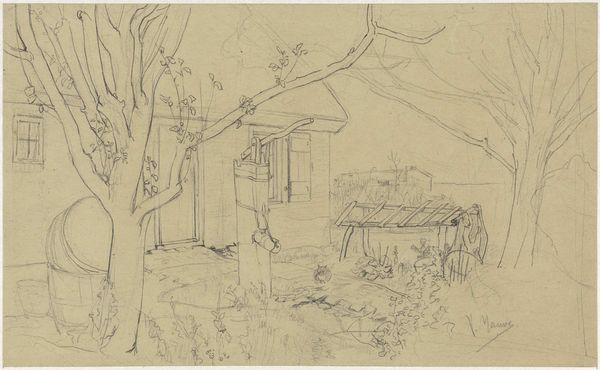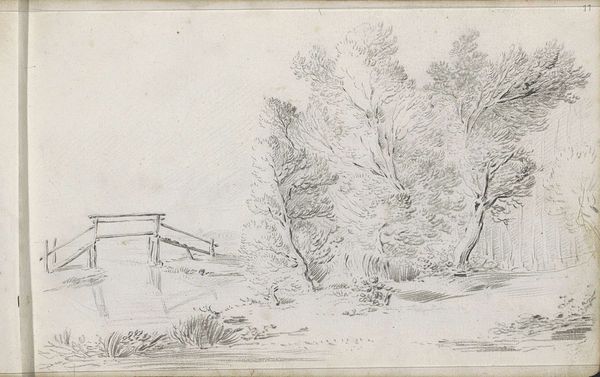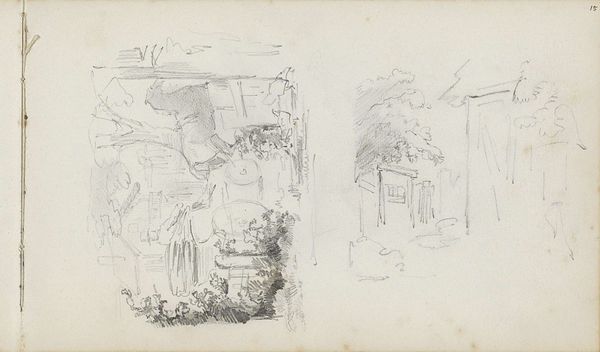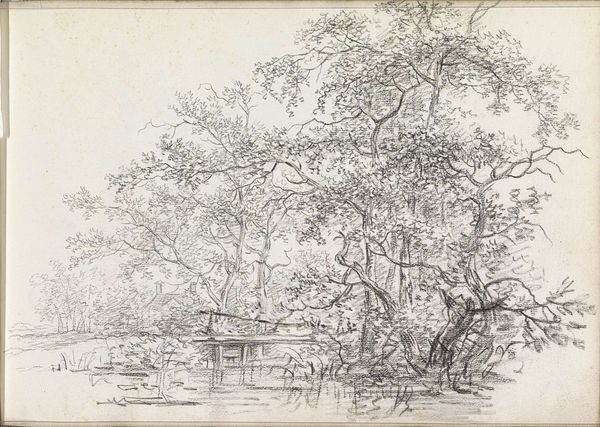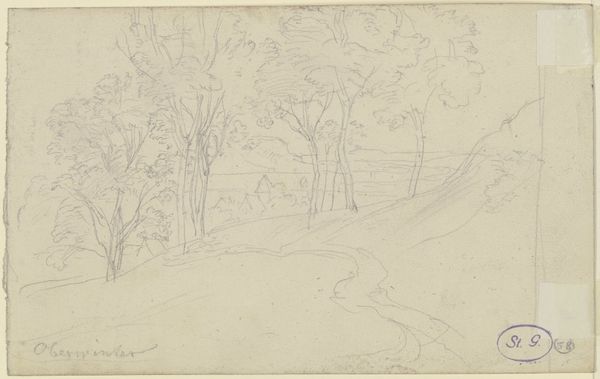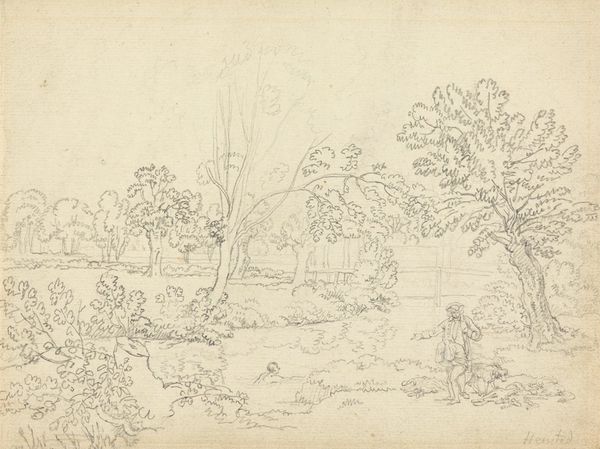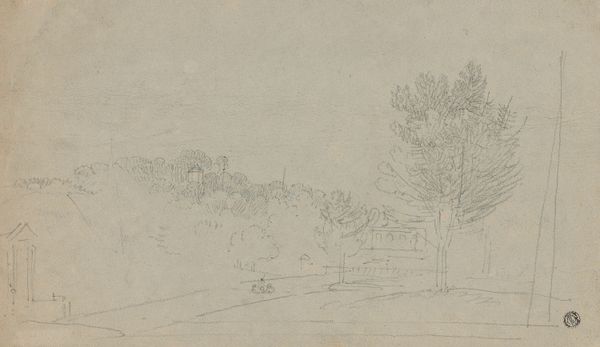
drawing, pencil
#
drawing
#
garden
#
impressionism
#
pencil sketch
#
landscape
#
pencil
Copyright: Rijks Museum: Open Domain
Editor: So this is "Terraces in a garden behind houses", a pencil drawing by Anton Mauve, dated somewhere between 1848 and 1888. It feels so…unfinished, almost dreamlike in its simplicity. What do you see in this piece, particularly regarding the recurring motifs? Curator: This dreamlike quality you mention is quite striking. The scene, rendered with delicate pencil strokes, almost feels like a fleeting memory. I notice the garden furniture. The empty chairs and tables evoke a sense of absence, a pause in activity. What sort of gathering, or social moment, do you think this space signifies? Editor: Maybe a summertime gathering? It's certainly peaceful, perhaps capturing the remnants of social activity, suggesting the quiet moments after everyone's left. But how much of this peaceful feeling comes from the materials? Would this piece communicate differently as an oil painting, for instance? Curator: Exactly. The pencil itself invites intimacy. It feels like a personal sketch, a private moment captured rather than a grand public statement. Notice how Mauve uses layering and suggestion, rather than sharp, definitive lines. It’s a symbolic language in itself, hinting at memory and impermanence, the beauty of what is ephemeral. Does this soft focus contribute to your feelings regarding this work? Editor: It definitely amplifies that feeling. Everything feels soft, like you could walk right through it. Looking at how the forms begin to fade as they reach the back, you realize it could disappear entirely any second! I wonder what it says about Mauve and his cultural position during the mid-19th Century that he captured it this way? Curator: Good question. Think about how growing industrialization pulled populations into cities at that time, further and further away from nature. Landscapes became more nostalgic, reminders of a simpler life, an attempt to hold onto those receding ideals. This drawing speaks to the enduring human need for connection to nature. The garden transforms into more than just a place; it becomes a symbol of longing. Editor: That gives me a lot to consider. I guess that soft focus becomes an emotional one too! Thank you, that makes this piece much more interesting.
Comments
No comments
Be the first to comment and join the conversation on the ultimate creative platform.
